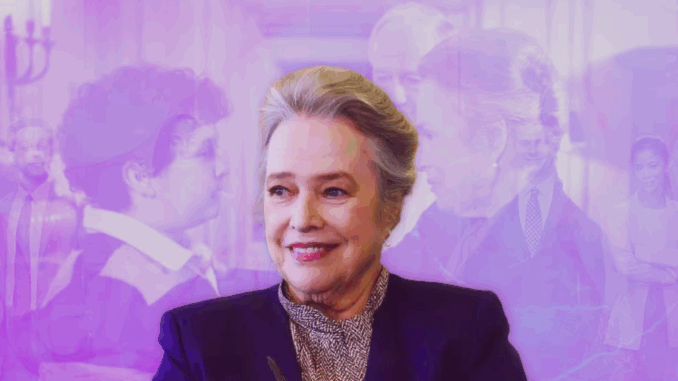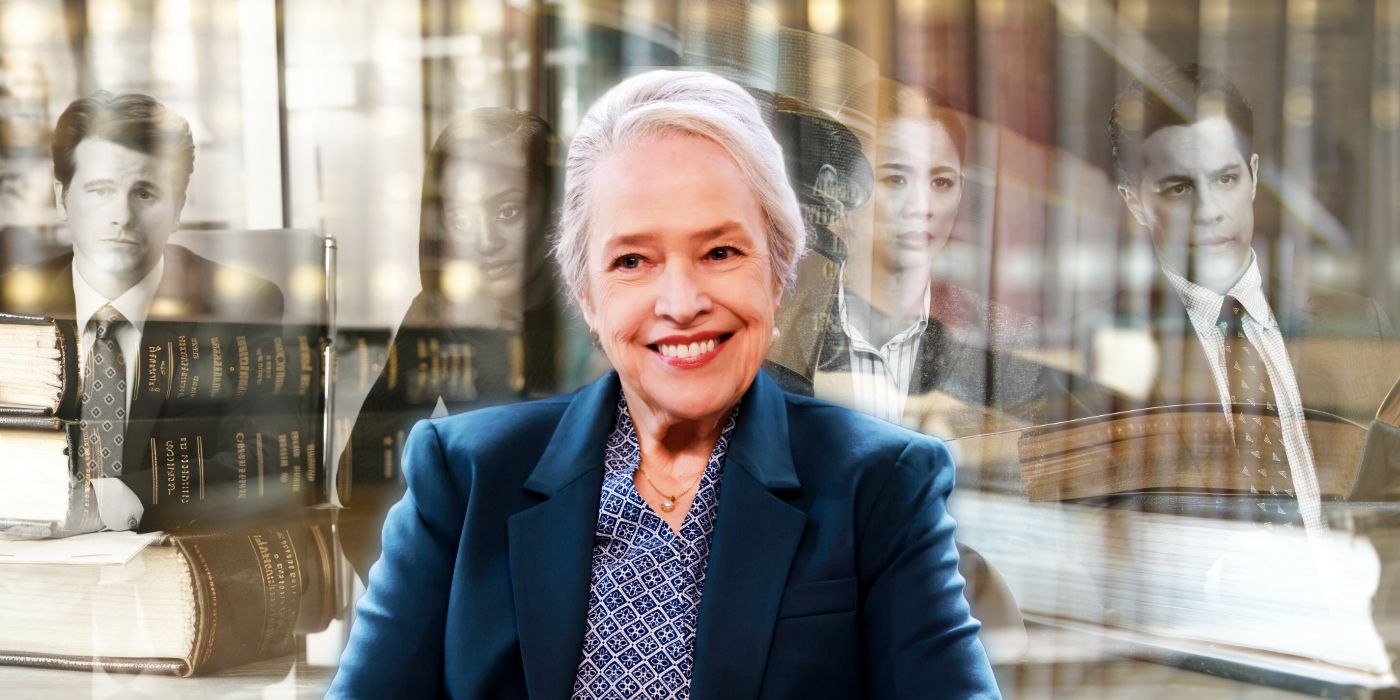
Television is full of fast-talking lawyers and morally gray antiheroes, but Matlock on CBS has delivered something different — and arguably more powerful — in the form of Madeline Matlock, portrayed by Oscar-winner Kathy Bates. With her disheveled briefcase, quick wit, and unshakable sense of justice, Madeline is not just a clever character — she’s a new kind of moral compass for modern times.
At a cultural moment when viewers are increasingly disillusioned with institutions — legal, political, or otherwise — Madeline’s character arrives with a quiet but defiant question: What if justice still mattered?
Not Your Typical TV Lawyer
From the first episode of Matlock‘s reboot, Madeline sets herself apart. She isn’t flashy. She doesn’t rely on legal loopholes or last-minute courtroom drama. Instead, she listens. She investigates. She argues — not with theatrics, but with relentless clarity.
Kathy Bates plays her with a mix of exhaustion and fire, capturing a woman who’s seen the system fail more than once and yet refuses to give up on it entirely. In a time of sensational legal dramas, Madeline brings a realism that is surprisingly radical: justice isn’t quick, and it isn’t perfect, but it’s worth fighting for.
Unlike her predecessor, Ben Matlock — who charmed juries with Southern sweetness and trapdoor tactics — Madeline’s strategy is straightforward. Her version of justice is built not on charisma, but on truth. She’s less interested in winning than in doing what’s right. That’s what makes her so compelling — and so necessary.
A Hero Born From Defeat
Madeline isn’t a young upstart. She’s a woman who’s been knocked down by the system she now works to reform. Her backstory — disbarred years earlier after a high-profile whistleblower case — is not just a plot device. It’s a central component of her moral code.
She’s not trying to build a career; she’s trying to make peace with one she almost lost. And in doing so, she approaches each case with the weight of lived experience. Every legal battle is personal. Every client is a test — not of her skills, but of her belief that the law can still be a tool for good.
In this way, Madeline becomes a deeply rare figure in television: a character whose righteousness isn’t naïve, but earned. She’s skeptical, yes — but not cynical. And in today’s landscape of morally conflicted protagonists, that kind of integrity feels almost rebellious.
Making Empathy Her Weapon
What truly sets Madeline apart isn’t just her courtroom acumen — it’s her emotional intelligence. She talks to janitors, bailiffs, and clients with the same level of respect she offers her legal peers. She reads body language like evidence. She doesn’t just represent her clients; she understands them.
This empathetic approach makes her dangerous in court. Prosecutors underestimate her. Corporate attorneys dismiss her. But it’s precisely because she sees the humanity in every witness — and because she refuses to reduce people to “victim” or “criminal” — that she wins.
As Bates herself noted in a behind-the-scenes interview, “Madeline doesn’t play a part in court. She is who she is. That honesty is her strategy.”
Standing Tall in a System That Wants Her Small

In every episode of Matlock, there’s a moment where Madeline faces down someone more powerful — a smug CEO, an arrogant judge, a corrupt partner — and refuses to flinch. That stillness, that composure, is her revolution.
She’s a woman in her seventies, a legal outcast, and a perceived relic in a young person’s profession — and yet, she never begs for relevance. She demands it, simply by being undeniable. For viewers — especially older women, working professionals, and those who have been underestimated — she’s more than a character. She’s a symbol.
A Hero for 2025, Not the 1980s
In many ways, Madeline Matlock couldn’t have existed in the original series. Television at the time rarely centered older women in positions of intellectual power. But the 2024 reboot is built around her, and that changes everything.
She doesn’t need a love story to be interesting. She doesn’t need a trauma arc to justify her strength. She doesn’t need to be softened to be likable. She’s allowed to be brilliant, difficult, vulnerable, funny, tired — in other words, real.
And at a time when courtroom dramas often reduce justice to a punchline or a plot twist, Matlock quietly reminds viewers that the law can still be personal. That compassion can be a weapon. That truth still matters.
The Verdict Is In
Kathy Bates’ portrayal of Madeline Matlock doesn’t ask for your approval — and that’s exactly why it earns your respect. She’s not flashy, not flawless, and not particularly interested in your opinion. But she shows up, she speaks out, and she fights like hell for people who’ve been left behind.
And maybe, in 2025, that’s the kind of legal hero we need the most.